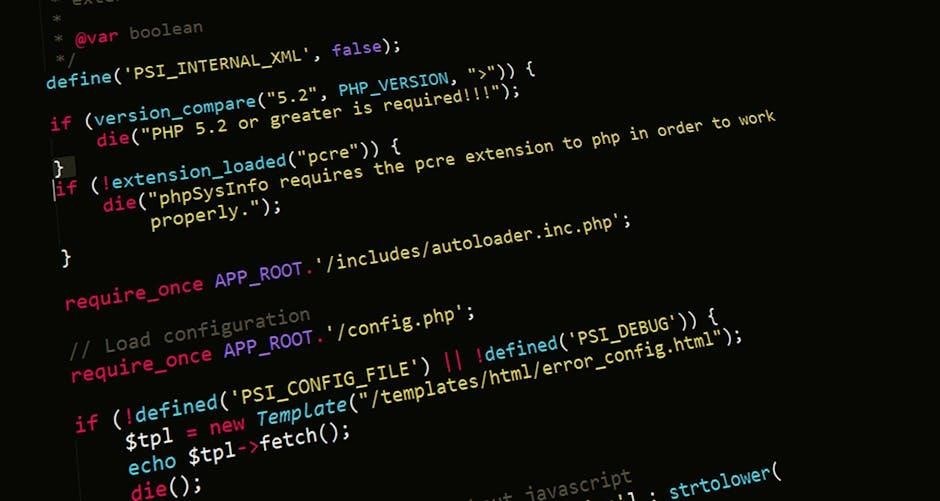The DSM-5, published by the American Psychiatric Association, is the fifth edition of the Diagnostic and Statistical Manual of Mental Disorders, providing standardized criteria for mental health diagnosis and research․
Overview of DSM-5 and Its Importance
The DSM-5 is the cornerstone of mental health diagnosis, providing standardized criteria for identifying mental disorders․ It serves as a critical tool for clinicians, researchers, and educators worldwide․ Updated from the DSM-IV, the DSM-5 incorporates new scientific evidence and clinical insights, ensuring accurate and reliable diagnoses․ Its structured framework helps professionals understand mental health conditions, guiding treatment plans and research․ The DSM-5’s importance lies in its ability to promote consistent diagnostic practices globally․ The French translation further extends its accessibility, enabling French-speaking professionals to apply its guidelines effectively․ This manual is indispensable for advancing mental health care and improving patient outcomes across diverse clinical settings․
Why a French Version is Essential
The French version of the DSM-5 is crucial for ensuring accessibility to mental health professionals in French-speaking regions; It bridges language barriers, enabling accurate diagnoses and treatments․ The translation, coordinated by experts like Patrice Boyer and Marc-Antoine Crocq, maintains the manual’s scientific integrity while adapting it for francophone contexts․ This ensures consistency in clinical practices across linguistic and cultural boundaries․ Additionally, the French edition supports education and training, allowing students and professionals to reference the manual in their native language․ Its availability fosters a unified approach to mental health care, enhancing understanding and collaboration among global practitioners․ This underscores its vital role in promoting equitable mental health services worldwide․

Official Publication and Translation
The French version of DSM-5 was officially published by Elsevier Masson in 2015, coordinated by Patrice Boyer and Marc-Antoine Crocq, ensuring linguistic accuracy and scientific integrity․
Details of the French Translation of DSM-5
The French translation of DSM-5 was meticulously coordinated by a team of experts, including Patrice Boyer and Marc-Antoine Crocq, ensuring cultural and linguistic adaptation while maintaining the original diagnostic criteria․ The translation aimed to preserve the scientific integrity of the manual, making it accessible to French-speaking mental health professionals․ Published by Elsevier Masson, it aligns with the original DSM-5 released in 2013, offering a reliable reference for diagnosis and research in French-speaking regions․ This edition reflects the collaborative efforts of international experts, ensuring its relevance and accuracy for clinical practice and academic use;
Publishers and Release Dates
The French translation of DSM-5 was published by Elsevier Masson, a renowned medical and scientific publisher, in June 2015․ This edition was coordinated by a team of experts, including Patrice Boyer and Marc-Antoine Crocq, ensuring a precise and culturally adapted translation․ The original DSM-5, published by the American Psychiatric Association in 2013, served as the foundation for this French version․ The publication marked a significant milestone, providing French-speaking mental health professionals with a standardized diagnostic tool․ The translation aligns with the original manual’s structure and diagnostic criteria, maintaining its scientific integrity while making it accessible to a broader audience․

Accessing DSM-5 in French
The French version of DSM-5 is accessible through academic libraries and online platforms like the Service des bibliothèques et archives, offering comprehensive diagnostic tools for mental health professionals․

How to Find the DSM-5 PDF in French Online
To locate the French version of the DSM-5 PDF online, users can utilize academic library resources or official publishers․ Start by accessing the Service des bibliothèques et archives discovery tool, enter “dsm-5” in the search bar, and filter results to view online documents․ Additionally, platforms like CHUM Library offer digital access to the DSM-5 in French․ Ensure to use reputable sources to avoid unauthorized downloads․ This method provides quick access to essential diagnostic criteria for mental health professionals, researchers, and students․ Always verify the authenticity of the source to comply with copyright regulations․ Accessing the DSM-5 in French through official channels ensures accuracy and reliability for clinical practice and education․
Academic and Library Resources for Access
Academic institutions and libraries provide authorized access to the DSM-5 in French․ Universities like UdeS offer digital versions through their library systems․ Users can access the DSM-5 PDF in French by logging into their institutional accounts․ The CHUM Library has also integrated the manual into its collection, allowing access via their network․ These resources ensure compliance with copyright laws and provide high-quality, reliable versions of the DSM-5․ Students and professionals can utilize these platforms to access the manual without unauthorized downloads․ Academic libraries often require authentication for access, ensuring the material is used responsibly and ethically․ This method supports both clinical practice and educational needs effectively․

Key Features of the DSM-5 French Edition
The DSM-5 French edition offers standardized diagnostic criteria, updated classifications, and a user-friendly structure, ensuring accurate mental health assessments and aligning with international clinical practices․
Updates and Revisions in the DSM-5
The DSM-5 introduced significant updates to diagnostic criteria, reflecting advances in mental health research․ Key revisions include the reclassification of autism spectrum disorder, changes in substance use disorders, and the addition of conditions like prolonged grief disorder․ The DSM-5-TR, released in 2022, further refined criteria for suicidal behavior and cultural formulations․ These updates aim to enhance clinical accuracy and adapt to evolving mental health understanding․ The French edition ensures these revisions are accessible to Francophone professionals, aligning with global psychiatric practices and improving diagnostic consistency․
Structure and Organization of the Manual
The DSM-5 is structured to provide clear diagnostic criteria and descriptions for mental health professionals․ It is divided into sections, starting with an introduction, followed by diagnostic criteria, and descriptive text for each disorder․ The manual includes categories such as neurodevelopmental disorders, schizophrenia spectrum disorders, and mood disorders, among others․ Each entry details essential diagnostic features, associated symptoms, and differential diagnoses․ The French edition maintains this structure, ensuring consistency and accessibility for Francophone professionals․ The organization facilitates quick reference, making it a practical tool for clinical practice and research․ This clear framework supports accurate diagnosis and treatment planning across diverse mental health conditions․

Legal and Ethical Considerations
The French edition of the DSM-5 is protected by copyright, requiring users to adhere to licensing agreements for ethical and legal usage of diagnostic material․
Copyright and Licensing Issues
The French version of the DSM-5 is protected by copyright, with publishing rights held by Elsevier Masson․ Unauthorized distribution or sharing of the DSM-5 PDF in French is illegal and violates intellectual property laws․ Users must obtain the manual through official channels to ensure compliance with licensing agreements․ This protects the work of translators and contributors, such as Patrice Boyer and Marc-Antoine Crocq, who coordinated the French edition; Ethical use requires respecting these legal boundaries, ensuring that professionals and researchers access the material responsibly․ Proper licensing also guarantees access to updates, such as the DSM-5-TR, which includes revised diagnostic criteria․
Responsible Use of the DSM-5 PDF
Responsible use of the DSM-5 PDF in French requires adhering to ethical and legal standards․ Professionals must ensure they access the document through authorized platforms, such as academic libraries or official publishers, to avoid copyright infringement․ The DSM-5 is a critical tool for mental health diagnosis and research, and its proper use ensures accurate and consistent clinical practices․ Users should avoid sharing the PDF illegally, as this undermines the work of translators and publishers․ Additionally, the manual should be used in conjunction with clinical judgment, as it is not a substitute for professional expertise․ Responsible use promotes both ethical practice and respect for intellectual property․ Always verify the source and legality of the document when accessing it online․
The DSM-5 in French is a vital resource for mental health professionals, offering standardized diagnostic criteria․ Accessing it legally ensures ethical practice and supports accurate clinical decisions․

Final Thoughts on Accessing DSM-5 in French
Accessing the DSM-5 in French is essential for mental health professionals in French-speaking regions․ The official translation, published by Elsevier Masson, ensures accurate diagnostic criteria and ethical practice․



